An almost decade-long effort that began as a small grassroots campaign and grew to an international effort to stop dam construction on two of Patagonia's most wild and celebrated rivers has finally come to an end. Yesterday, Chile's Community of Minsters, its highest administrative authority, made a unanimous decision to formally cancel the HidroAysén plan, a $8 billion project which sought to build a five dam hydroelectric generation system on the country's Baker and Pascua Rivers. The Baker and Pascua rivers flow through Aysen in Patagonia, a mostly roadless, remote region of Chile where powerful rivers that teem with wild trout descend from their Andean roots flanked by glaciers and course their way to the sea through breathtaking mountainous scenery and lush green countryside.

According to International Rivers, "the Committee, which consists of the Minister of Environment, Health, Economy, Energy and Mining, Agriculture, and Tourism, evaluated 35 appeals which were filed by the Patagonia Defense Council and local citizens in response to the project’s Environmental Impact Assessment after it was approved in May 2011. Though it [took] more than three years, with meetings and decisions being repeatedly delayed and eventually passed on to the new administration, [the] decision is a recognition of the technical and procedural flaws surrounding HidroAysén as well as the significant impacts the project would have had on one of Chile’s most iconic regions."
The people of Chile have been vehemently against to the project since it was proposed, with over 75% of Chilean citizens opposed to the HidroAysén plan being approved.
Patricio Rodrigo, Executive Secretary of the Patagonia Defense Council noted, “The government’s definitive rejection of the HidroAysén project is not only the greatest triumph of the environmental movement in Chile, but marks a turning point, where an empowered public demands to be heard and to participate in the decisions that affect their environment and lives.”
As an alternative to power production in Aysen, Chilean officials have indicated that the government will focus on energy efficiency and sustainability through the use of renewable energy sources as well as increased import of natural gas from Argentina.





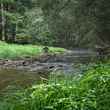
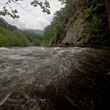



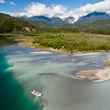
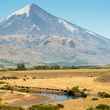



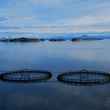





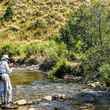



![Instructors John Juracek [left] and Brant Oswald [right] from The School of Trout (photo: Tim Romano). school of trout instructors john juracek brant oswald](https://www.hatchmag.com/sites/default/files/styles/gallery_thumbnail/public/field/image/romano-0024.jpg?itok=X_had7Jf)
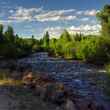

Comments